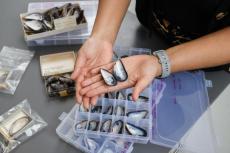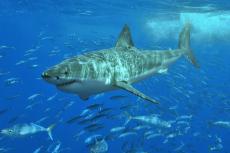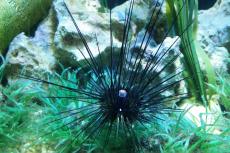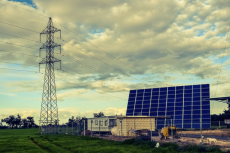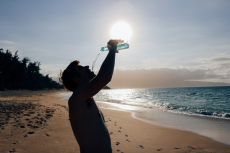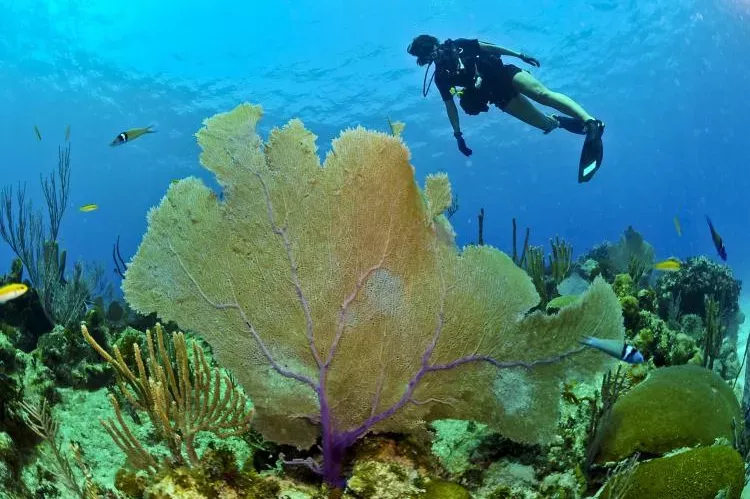
Today’s oceans reflect the large-scale shifts that increasing global temperatures and climate change are imposing on our planet. Without significantly rethinking how we as humans are affecting the planet’s climate and condition, these changes will continue to intensify and increase.
Already, the shifts caused by climate change have affected our engagement with the world’s oceans and those interactions may continue to need adjustment as we continue on. The world of diving operations is just one area where global changes need to be understood and adjusted to in order to keep diving safe and effective.
The Ways Climate Change is Affecting the Ocean
Climate change is causing a wide range of adverse effects that threaten both human health and environmental wellbeing alike. Increased greenhouse gas emissions trap more of the sun’s heat within our atmosphere. The rising worldwide temperature averages that have resulted have caused a few distinct changes to oceanic features over the past decades. These changes include the following:
Water Temperature Increases
The world is absorbing more heat now than it was 50 or 100 years ago. The world’s oceans are taking much of the brunt and excess energy caused by trapped greenhouse gasses. According to water temperature studies and research that have been conducted for more than a century, the ocean’s average temperature is rising in correlation with the average rise in global temperature that has been documented elsewhere.
Increased Storm Intensity and Frequency
Even slight average changes to core water temperatures across such large bodies of water can create conditions that exacerbate the intensity of ocean storms and hurricanes. The ocean is a complex ecosystem of large-scale systems and phenomena that all affect each other - marine life, currents, geological events, weather patterns, seasons, land run-off, human activities, and more.
When elements are altered, this can affect the balance and mechanics of the ecosystem as a whole. We’ve seen evidence of this in increased damage from hurricanes and oceanic natural disasters in recent years as compared to less recent time periods.
Higher Water Levels
When the water temperature in the oceans increases even slightly, the resulting effects on icebergs and arctic caps can be significant. The normal ebb and flow of ice melting during warmer seasons but returning to ice in colder seasons has been disrupted or hampered, decreasing ice masses at the poles and causing the ocean’s water levels to rise over time. When combined with continued global warming, these events have propelled each other and occurred at increasing paces in the last decade.
Coral Reef Bleaching
Coral reefs are highly interconnected ecosystems that house, in part, a symbiotic relationship between coral and various algae species that live within those corals. Adverse conditions can cause stress to the corals and cause them to expel the algae that live within them.
One example of a stressor that can cause this phenomenon is the water becoming too warm. Because the algae in question are what give the corals their vibrant colors, expelling them causes the coral to appear a bleached white. Though bleached coral can survive this if they are able to return to a more stable and unstressed state, this phenomenon weakens the coral and makes them much more vulnerable. The rising temperatures of the ocean are causing widespread waves of coral bleaching around the world.
How These Changes Affect the Diver’s Experience
Obviously, these shifts can have significant implications for divers. Here are a few ways divers should be aware of how oceanic shifts that have occurred because of global warming may affect the diving experience:
Take Into Account How Differences in Temperature Affect the Diving Experience
From preferences for personal gear and protection to more technical equipment variations, even small variations in normal temperature can create noteworthy implications you need to be aware of as a diver.
Depending on the depth and circumstances of your particular scenario, higher average ocean temperatures may significantly impact how to have a safe, effective dive. Do some research on your equipment and the area where you plan to dive to see whether you’ll need to make any adjustments.
Be Aware of Storm Severity and Different Patterns
Especially if you have dived for a number of years or have known a particular diving area for a long period of time, it can be easy to make assumptions about weather and storms that might prove outdated or even dangerous. The ocean and its patterns are different than they were even 3-5 years ago. Make sure to get current information and tips before diving even if you plan to dive in an area you’re familiar with.
Know How Global Warming May Have Changed Any Attractions You Hope to See
Obviously, diving to see coral reefs is a different experience if they’re currently in a bleached state. It’s a good idea to check on whatever attractions or experiences you hope to see and enjoy before diving to make sure you’ll actually be able to experience them the way you plan to.
Stay on Top of the Latest Safety Tips
Some oceanic safety advice remains current and reliable year in and year out, but global warming can create significant changes and disruptions that can alter best practice. Make sure you do your research before diving to stay on top of the most recent information about your area, type of dive, and any conditions that might affect the experience and your safety.




